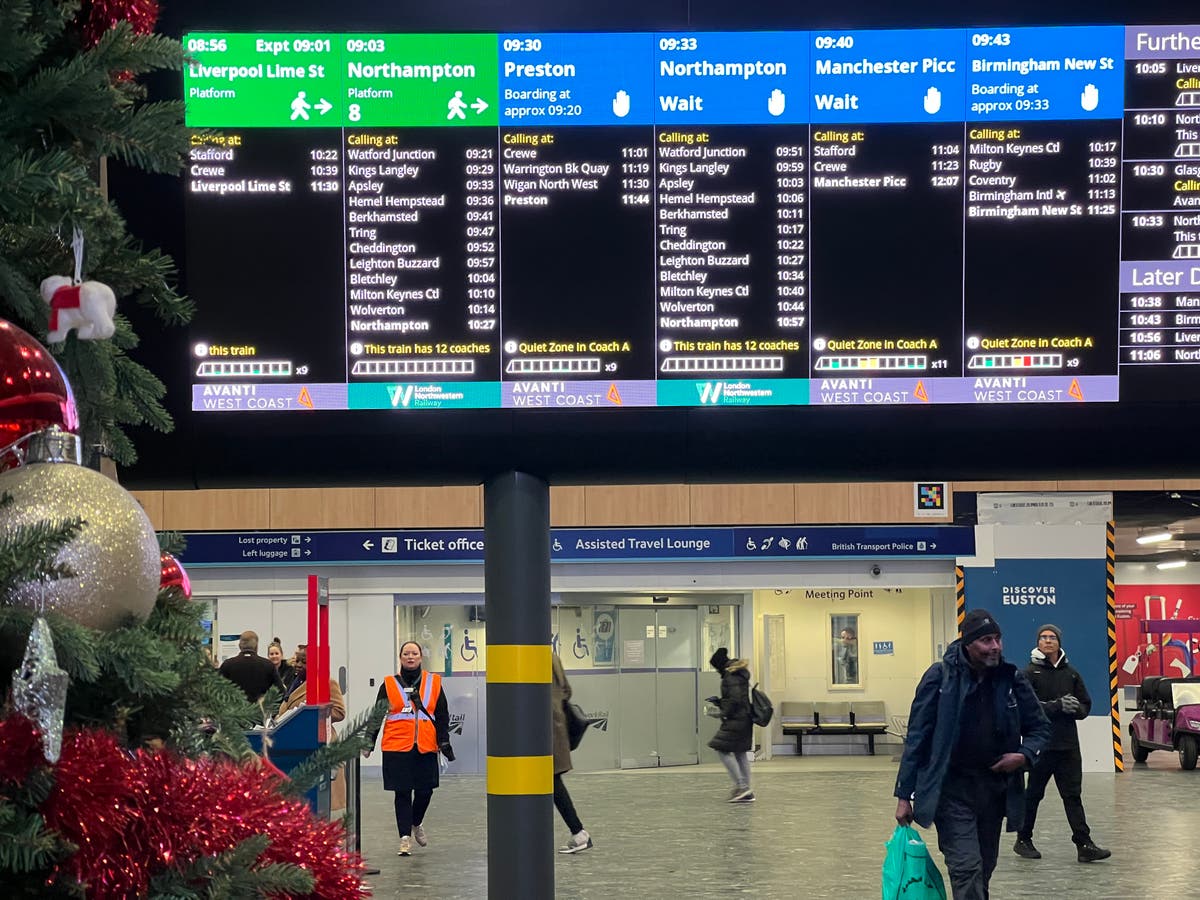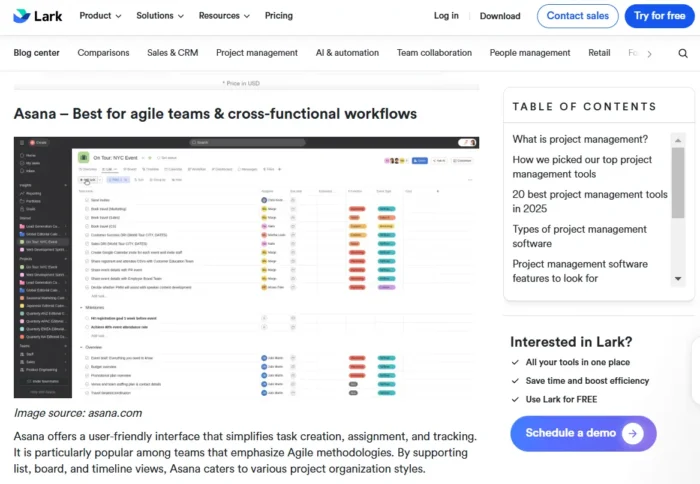Which trains are running during today’s rail strikes?
While many intercity trains are operating during limited hours, most railways in Wales and Scotland at a standstill

Sign up to Simon Calder’s free travel email for weekly expert advice and money-saving discounts
Get Simon Calder’s Travel email
The UK’s busiest railway stations are much quieter than normal as the latest round of national strikes begins.
The most protracted and disruptive rail stoppages since 1989 involve walk-outs on a total of 12 days, stretching into the New Year, by members of the RMT union. Cancellations began on Monday as train operators responded to the strike. In many parts of Great Britain there are no trains at all. Conversely, though, fast and frequent links are operating on a number of lines between 7.30am and 6.30pm on strike days.
But wintry weather and other problems are disrupting some operations. So which trains are running and where?
London commuter belt
North of the capital, Thameslink trains from Bedford (fast) and Luton (stopping) to London St Pancras International are running every half-hour; all services call at Luton Airport Parkway. They are not continuing, as they usually do, south of the River Thames.
Cambridge and many stations in Hertfordshire are being served from King’s Cross and Liverpool Street in London, as well as Stansted airport.
Norwich, Ipswich and Colchester are being served by hourly fast trains to and from Liverpool Street, plus additional stopping services between Colchester and London.
South Essex has good services as far as Southend and Shoeburyness from Liverpool St and Fenchurch Street.
In Kent, Southeastern is running trains on the High Speed 1 line from London to Ashford, with some delays and cancellations. Suburban trains to Dartford (via both Bexleyheath and Sidcup) and Sevenoaks are running as far as London Bridge.
The only station on the Sussex coast with trains from London is Brighton, served every half-hour from both London Victoria and London Bridge via Gatwick Airport (ie trains every 15 minutes), with a half-hourly shuttle running between Brighton and Hove. Some south London suburban trains are running.
At London Waterloo, the busiest station in the UK, four trains per hour are running to Windsor, Woking and Basingstoke, with two trains each hour continuing to Winchester and Southampton (via the airport).
Slough, Reading, Oxford and all Heathrow terminals are being served with regular trains from London Paddington. Slough-Windsor, Maidenhead-Marlow, Twyford-Henley and Reading-Basingstoke branches from the Great Western line are being served.
Oxford Parkway is getting an hourly train from London Marylebone, as are Aylesbury and Banbury. But the entire Chiltern Railways Midlands network north of Banbury is closed until 9 January.
Trains on the Isle of Wight are running normally with a full schedule from early to late.
West of England
No trains are running in Dorset or Cornwall. Devon is being served during a national rail strike for the first time, with links from Plymouth and Exeter to Bristol Temple Meads and London Paddington.
Wiltshire is better served than during previous strikes; besides the regular trains serving Swindon, Westbury and Trowbridge have links with Bath and Bristol, continuing to Cardiff.
Wales
Cardiff Central is the hub for services on strike days. Going east, hourly trains run from the Welsh capital to London Paddington via Bristol Parkway and Swindon, as well as a shuttle service to Newport and the Great Western link to Bristol, Bath and Westbury.
The only other services connect Cardiff with the Valleys: Aberdare, Merthyr Tydfil, Rhymney and Treherbert.
The national operator says: “Transport for Wales is not involved in the industrial action. However, the industrial action resulting from the dispute between the unions and Network Rail means we’ll be unable to operate rail services on Network Rail infrastructure.”
West Midlands
Birmingham New Street is hub for a wide range of trains. Avanti West Coast has an hourly train to Birmingham International (for the city’s airport), Coventry, Rugby, Milton Keynes Central, Watford Junction and London Euston.
CrossCountry is running to Reading and Southampton; Leeds, York, Newcastle and Edinburgh; Leicester; and Manchester via Wolverhampton and Stafford.
Local and region services to Bromsgrove, Crewe, Lichfield Trent Valley, Redditch and Wolverhampton are operating.
Northwest England
Avanti West Coast has hourly links to Manchester Piccadilly (via Crewe, not Stoke) and Liverpool, though services are running up to an hour late due to problems between Stafford and Crewe.
Manchester Victoria station is closed, but from Piccadilly station there are trains to Liverpool, Preston, York via Leeds and Manchester airport.
Merseyrail is running trains as far south as Chester every 45 minutes.
Yorkshire and East Midlands
Leeds station is looking busy, with fairly frequent departures to Manchester, York, Bradford, Skipton, Ilkley, Edinburgh via Newcastle, and London King’s Cross.
Grand Central, an “open-access” operator, is running two trains between Wakefield, Doncaster and London King’s Cross, and three each way linking Northallerton, Thirsk and York with the capital.
From York, there is almost a “turn up and go” half-hourly or better service to London – until the last southbound train at 3.58pm.
Hull Trains is running between London and Doncaster.
Hourly trains from Sheffield via Derby and Leicester to London St Pancras are running normally, along with links from Nottingham via Leicester and Corby via Kettering.
Local services connecting Derby and Matlock, Derby and Nottingham, Sheffield and Nottingham and Leicester and Nottingham are running.
Northeast England
Newcastle is the hub for activity, with fairly frequent trains on CrossCountry, LNER and Lumo to Edinburgh, and southbound to York and onwards to Birmingham and London. One Lumo service has been cancelled because of a train fault, but passengers are been carried on LNER.
Scotland
ScotRail, the national operator, is running a strike timetable right through the week, with a very limited service based around and between Edinburgh and Glasgow (which are connected by two fast trains an hour via Falkirk High).
Links from Edinburgh to Tweedbank and Cowdenbeath are being disrupted by “problems at depot”. Other stations accessible from the capital are Helensburgh via Glasgow, North Berwick and Larbert. The last London train left at 1pm.
From Glasgow Central, the final southbound train to London departed at 12.22pm (the last northbound arrival is at 6.30pm). But Lanark and Larkhall are still accessible. From Glasgow Queen Street, direct trains are running to Airdrie, Garscadden, Hyndland and Springburn. Mostly they are served by two trains an hour.
Northern Ireland
Trains are running normally, including international services to and from Dublin.
France/Belgium/the Netherlands
The basic pattern is that the first train is to Brussels, Rotterdam and Amsterdam at 7.16am, and the last arrival is at 6.30pm from Paris. Some early trains are being moved later, and late trains moved earlier, and some cancelled altogether.

 ShanonG
ShanonG 
































